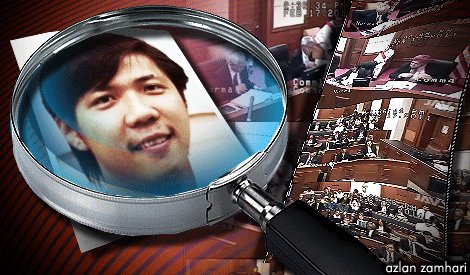Investigation into Teoh Beng Hock's death faulty

It is heartening to note that the attorney-general will have another look at Teoh Beng Hock's death but it will definitely be an arduous task as it has been more than a decade since the tragedy.
MACC officers were held accountable but no one has been identified to be criminally responsible. What went wrong? Why is it that our criminal justice system is unable to deliver the goods?
We can trace the source of the problem to the initial classification of the case as a “sudden death” report.
If the officer-in-charge of the police district had a more aggressive assessment at the scene of the crime and that even with an iota of suspicion he could, with the concurrence of the officer-in-charge of the criminal investigation, have classified it as a criminal offence.
This would have enabled investigators to use all the powers of investigation available to them under chapter 13 of the Criminal Procedure Code including the powers of arrest, detention, further detention and interrogation.
The failure of this assessment and the under-classification of the case at the outset is why we are in this predicament with Beng Hock's case. The suspects were obviously all within the MACC building.
It needed the CID to detain the officer who officially had custody of Beng Hock together with all those who came into contact with him just before his death. In this case, the first 48 hours of the investigation were crucial to either identify the perpetrators or exonerate them.
The main tool of investigations for this case was to arrest immediately the suspects, detain them, apply for further detention and interrogate them separately by trained investigators from the technical aids branch of the police.
The probability of solving the case would then have been much higher. In this case, a difficult call was required to arrest all those acquainted with the case and deceased within the last 24 hours of his death. All of them in this category were suspects.
The coming inquiry by the AG should make an effort to probe this aspect. Was it by design or sheer incompetence?
Normally investigators can narrow down the person or persons responsible from the similarities and contradictions of their statements. The delay in applying this approach would allow suspects, if any, to collaborate and synchronise their stories so as to ensure that all give the same version of false evidence if that is the case.
For the authorities, time is always of the essence in such cases. The longer the delay in the arrest the more difficult it becomes to establish the truth.
Confidence and the experience of balancing between public interest, rights and gathering of evidence must be part of the natural instinct of an investigator.
Confidence and the experience of balancing between public interest, rights and gathering of evidence must be part of the natural instinct of an investigator.
An instinctive hunch should have been allowed to take its course although there is the downside of trampling on the rights of the suspects. A good and experienced investigator honed in the skills normally can sense who the perpetrators are especially if they were in close proximity to the deceased around the time of his death.
Valuable time was lost in pursuing the right action when investigators at the scene of the crime were more tailored to do damage control for MACC rather than ensuring that all efforts were being carried out for justice to be swiftly done.
At least in this case, we should try to understand how intricately balanced an investigation is for serious offences especially when it is crucial to take immediate action to arrest, detain and interrogate suspects.
Generally we investigate first and arrest later but unfortunately, this case did not fall into that general theory. The more the criminal justice system understands how the push and pull of the investigative arm works, the better it can deliver.
Enhance the investigative powers of the police but balance it with firm and effective checks and balances. Interrogations and recording of confessions can be made transparent by audio and visual channels.
Raise the confidence and morale of investigators so as to enable them to make an authoritative call during their pursuit in gathering admissible evidence.
They must be given the legal space and time to access all the tools of investigation. But come down hard on those who abuse these powers. The right balance must be struck if we are not to have another Teoh Beng Hock case. - Mkini
✍ Sumber Pautan : ☕ Malaysians Must Know the TRUTH
Kredit kepada pemilik laman asal dan sekira berminat untuk meneruskan bacaan sila klik link atau copy paste ke web server : https://ift.tt/2LoR2sK
(✿◠‿◠)✌ Mukah Pages : Pautan Viral Media Sensasi Tanpa Henti. Memuat-naik beraneka jenis artikel menarik setiap detik tanpa henti dari pelbagai sumber. Selamat membaca dan jangan lupa untuk 👍 Like & 💕 Share di media sosial anda!



















Post a Comment